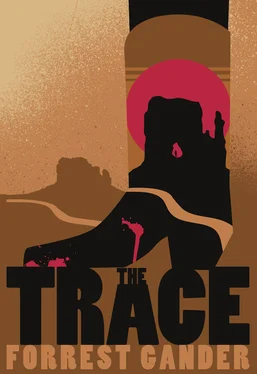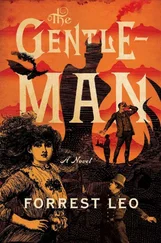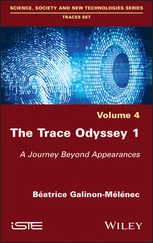Forrest Gander - The Trace
Здесь есть возможность читать онлайн «Forrest Gander - The Trace» весь текст электронной книги совершенно бесплатно (целиком полную версию без сокращений). В некоторых случаях можно слушать аудио, скачать через торрент в формате fb2 и присутствует краткое содержание. Год выпуска: 2014, Издательство: New Directions, Жанр: Современная проза, на английском языке. Описание произведения, (предисловие) а так же отзывы посетителей доступны на портале библиотеки ЛибКат.
- Название:The Trace
- Автор:
- Издательство:New Directions
- Жанр:
- Год:2014
- ISBN:нет данных
- Рейтинг книги:3 / 5. Голосов: 1
-
Избранное:Добавить в избранное
- Отзывы:
-
Ваша оценка:
- 60
- 1
- 2
- 3
- 4
- 5
The Trace: краткое содержание, описание и аннотация
Предлагаем к чтению аннотацию, описание, краткое содержание или предисловие (зависит от того, что написал сам автор книги «The Trace»). Если вы не нашли необходимую информацию о книге — напишите в комментариях, мы постараемся отыскать её.
The Trace — читать онлайн бесплатно полную книгу (весь текст) целиком
Ниже представлен текст книги, разбитый по страницам. Система сохранения места последней прочитанной страницы, позволяет с удобством читать онлайн бесплатно книгу «The Trace», без необходимости каждый раз заново искать на чём Вы остановились. Поставьте закладку, и сможете в любой момент перейти на страницу, на которой закончили чтение.
Интервал:
Закладка:
“Look,” she said surprised. “That bus is moving over so I can pass.”
“It happened with me yesterday too. And some of the big trucks’ll do the same.”
“That’s civil,” she said, nodding to herself, appreciative.
“You want to hear this story?”
“Right, tell away.”
“So there’s this reporter for the San Francisco Bulletin , George Weeks. He comes down to Mexico to cover the advance of Pancho Villa’s army. Villa’s getting lots of press in the U.S., and there’s a battle in Torreón, west of here. In the desert.”
“It’s all desert.”
“Chihuahua Desert’s big.”
Dale took a breath. He took off his sunglasses and looked out the window at the darkness falling into the mountains to the east. The formation closest to them — would you call it a mountain or a mesa, he wondered — stood up from the desert like a huge molar.
“So,” he went on. “After the fight in Torreón, this guy Weeks stays around and picks up some work with an English-language newspaper called The Mexican Review. One day he’s shooting the breeze with the manager, a Mexican named Melero, and he asks if Melero ever happened to come across an American by the name of Ambrose Bierce.
“‘Bierce?!’ Melero goes apeshit. ‘Bierce?!’ Of course, he says. They were best buddies. Bierce couldn’t speak any Spanish and Melero was the only Mexican in Torreón who could speak fluent English, so they always hung out together. Plus, they were both newspapermen. Melero said Bierce was always asking questions about the revolution. Said he, Melero, really liked the guy.
“‘Well,’ says Weeks. ‘What happened to him, to Bierce? Nobody’s heard from him in awhile.’
“Melero says he doesn’t know. He’ll check with some friends. A month or so passes, and he takes Weeks to meet a former sergeant for Tomas Urbina — one of Pancho Villa’s top generals. Urbina is famous for capturing San Luis Potosi from the Federales and now there’s an eco-hotel named for him in Patzcuaro.”
“And.”
“And Urbina’s sergeant says Sí, sí, he was with Urbina after Torreón, riding west. They ran into a mule train hauling arms to the Federales in Icamole. Fire fight broke out and most of the Federales escaped into the desert. But Urbina’s troops captured one of the Mexican soldiers and a gringo. The gringo didn’t speak any Spanish and they assumed he’d been collaborating with the Federales. No questions asked, Villa’s soldiers executed him on the spot.
“Then the sergeant describes the gringo. It sounds like Bierce, but to make sure, Weeks pulls out a book-jacket photo of Bierce and the sergeant ID’s him right off.”
“So we’ve got a firsthand witness,” Hoa said.
“Villa was executing people right and left. In Camargo, he lined up ninety women and a firing squad blew them away for, quote unquote, consorting with the enemy.”
“Xái tháng chó đẻ.” Hoa’s choice Vietnamese curse.
“Anyway, a couple months after Weeks, the San Francisco Bulletin sends another reporter to Mexico to verify the story. This guy tracks down the sergeant and the sergeant goes through the same account again, same details. He identifies another photo.”
She mulled it over. “So that’s how Bierce really died? In Icamole?”
“I’m not saying he didn’t die in a detention camp in Marfa, wounded after the Battle of Ojinaga. And you haven’t heard about his death in Sierra Mojada yet. But it’s very possible he was killed by Pancho Villa’s men in Icamole. In the wrong place at the wrong time, when he didn’t speak enough Spanish to save himself. An eyewitness report.”
“Yeah, but an eyewitness saw him die in the camp at Marfa — that guy who carried him across the river. And someone said he saw him die in the battle at Ojinaga too. Right?”
“There’s never any shortage of eyewitnesses in Mexico.”
Monclova to Ocampo
At 8:30 in the morning, it was eighty degrees and there was no moving air. Hoa knew it was just a taste of the heat to come. What she didn’t know was that something would happen in a few hours that would alter the whole trip. Alter her marriage.
Back in the passenger seat, she strapped her seatbelt on and almost immediately felt captive and depressed. She took one of her anxiety pills without any water. What had she wanted from this trip, anyway? She’d imagined some intimate time with Dale. She thought the change of routine would do her some good. Take her mind off Declan. But she still thought about him, and now she missed her work and her routine and her beauteous, risk-loving son.
Morning was just a pile-up of hours. From the Hotel Cumbre in Monclova to Cuatro Ciénagas, the drive was benign. The scenery failed to rouse her, and the landscape seemed to just recycle its various shades of sienna. At Ocampo, they exited the highway to fill up with gas and get something to eat and drink. They passed under an arched gateway made of sandstone, with letters that spelled Bienvenido a Ocampo Puerta del Desierto. On either side of the street, there were long rows of ghostly oak trees, their leaves chalky from dust and their trunks painted white.
“I need a bathroom stop, too,” Hoa said. “It’s been way too much sitting and way too little. .”
“Adventure?” Dale nodded empathetically. “I was looking at the maps this morning. I think we can take a major shortcut back to El Paso once we get to Sierra Mojada.”
The hood of the car gleamed and brewed under the primeval sun.
The straight, jacaranda-lined street led them to a church, another structure of pink, tan, and gray rocks locked together in a chunky mortar webbing. They found the gas station next to a green, one-room, octagonal public library.
“You see the bars on the windows of the library?”
Dale was turning off the ignition. “Yeah,” he said, even though he only just then glanced through Hoa’s window and spotted it. “Maybe it used to be the jail.”
Dale searched futilely for the credit-card reader on the fuel pump, and Hoa got out of the car, leaned against the front door, and scrutinized the gas station’s open garage. She felt the heat from the car door burn her thigh through her cotton slacks and jumped away like she’d been branded. The mechanic wandered out from the bay, and Dale paid for the gas in pesos.
“You think they have bathrooms inside?”
Dale squinted. They were talking through the shimmer of heat rising from the roof of the car. He was doubtful.
“Let’s go ahead and look for a place to have lunch,” he suggested. “Then it’s less than a hundred miles. Sierra Mojada, end of journey.” Saying end of journey, he felt better already.
“We can spend the night in Esmeralda, just around the bend from Sierra Mojada. This is going to be the day.”
“I’m still going to need a bathroom. That shortcut on the way back gets my vote. Maybe we can spend a day decompressing in El Paso. I don’t like being out of phone contact.”
In case Declan calls. Dale finished her sentence in his head.
When they had driven a few blocks from the gas station, Hoa noticed a little restaurant with a sandwich board advertising lunch specials. Dale wasn’t really hungry yet, but he turned the car around and parked a block away in a bank’s lot. Ocampo was a medium-sized town with a lot of downtown businesses open and a few people in the streets. There was no sidewalk, so they walked single file, Dale behind Hoa, on the curb until they stepped up onto the concrete patio with its little picnic table. They read the specials on the restaurant sign. Chinese-Mexican food.
“Okay with me,” Dale said. It was early for lunch and empty inside but for the waitress, a TV, a large flashing multicolored jukebox, and the ammonia reek of cleaning fluid. Hoa headed for the door marked Sanitario.
Читать дальшеИнтервал:
Закладка:
Похожие книги на «The Trace»
Представляем Вашему вниманию похожие книги на «The Trace» списком для выбора. Мы отобрали схожую по названию и смыслу литературу в надежде предоставить читателям больше вариантов отыскать новые, интересные, ещё непрочитанные произведения.
Обсуждение, отзывы о книге «The Trace» и просто собственные мнения читателей. Оставьте ваши комментарии, напишите, что Вы думаете о произведении, его смысле или главных героях. Укажите что конкретно понравилось, а что нет, и почему Вы так считаете.












